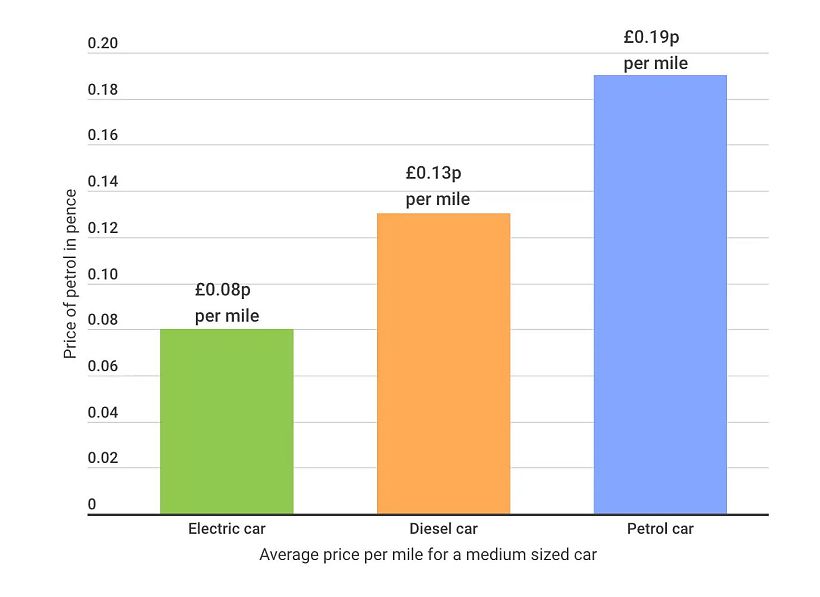When considering electric vehicle maintenance costs, it’s important to take into account several factors. Unlike traditional internal combustion engine (ICE) vehicles, EVs have fewer moving parts and don’t require regular oil and filter changes. Reduced maintenance may seem ideal for a fleet manager. However, it’s important to recognise that EVs have their own unique maintenance requirements. In this article, we will compare EVs and ICE vehicles and discuss how to effectively maximise the operations of your EV fleet.
Cost comparison of maintenance EVs vs ICE
When comparing the service costs of electric vehicles to traditional petrol or diesel-powered vehicles, it’s essential to consider the entire vehicle lifecycle. While EVs may have higher initial costs, their lower maintenance requirements and reduced fuel expenses can result in significant long-term savings.
Here is a breakdown of some key electric vehicle service cost differences:
- Fuel Costs: Electric vehicles can have significantly lower running costs compared to traditional petrol or diesel vehicles. By utilising home charging during off-peak hours, electric car owners can significantly reduce their running costs. However, if an electric vehicle relies solely on the public charging network, the expenses can be comparable to those of combustion engine vehicles.
- Brake Maintenance: EVs employ regenerative braking systems, which extend the life of brake pads and rotors, reducing maintenance costs from wear and tear.
- Engine Maintenance: With no internal combustion engine, EVs eliminate the need for regular oil and filter changes and other engine-related maintenance tasks such as replacement spark plugs, drive belts and hoses.

Image source: Uswitch
Electric vehicle maintenance breakdown
Regular maintenance is crucial for ensuring the longevity and optimal performance of your electric vehicle fleet. Neglecting routine servicing can lead to premature component failure, reduced efficiency and increased downtime, ultimately impacting your bottom line.
Common maintenance needs for EVs
To maintain the health and performance of an electric vehicle battery, it’s important to follow several key practices. These include regular diagnostics, optimal charging habits, temperature management, high-voltage system inspections, and keeping the vehicle’s software up to date. Each of these practices plays a crucial role in ensuring the longevity and efficiency of the battery, as well as the overall safety of the vehicle.
- High-voltage system inspections are necessary to ensure the safety and performance of the electrical components. These inspections help identify and address any wear or damage in cables and connections, maintaining the overall integrity of the vehicle’s electrical system.
- Regular monitoring of the battery’s state of health (SOH) through diagnostics is essential. Performing software updates to the Battery Management System (BMS) helps retain the battery’s capacity and performance over time, ensuring it operates efficiently.
- Regenerative braking systems in EVs reduce wear on traditional brake components by converting kinetic energy back into stored energy. However, regular checks of brake fluid and pads are still required to maintain braking effectiveness and ensure safety.
Tyres: Special Considerations for EVs
Tyres are crucial for all vehicles. For electric vehicles, tyre choice is even more critical due to its direct impact on battery range. When selecting tyres for your EV fleet or personal use, opt for A-rated rolling resistance tyres. These high-quality tyres can significantly enhance your vehicle’s efficiency by:
- Reducing charging frequency
- Extending battery range
- Improving overall energy consumption
For instance, the Bridgestone TURANZA EV is specifically designed for electric vehicles. It offers extended mileage per charge without compromising tread life, thanks to its energy-efficient performance and low rolling resistance.
The role of telematics and fleet management software
For personal EV drivers, overnight charging avoids peak-time costs, but commercial fleets face more complex schedules. Managing over 10 EVs can be challenging without digital tools. Telematics systems like Webfleet simplify EV battery management by allowing real-time monitoring of charging sessions and battery health, which helps in maintaining optimal battery performance and longevity.
Webfleet also offers dynamic route planning based on battery levels and charger locations, ensuring efficient route completion and preventing battery depletion. It provides real-time updates on charger availability and integrates with over 500,000 public charging points, reducing downtime and ensuring timely charging. Fleet managers can analyse historical data to optimise charging strategies, monitor driving behaviour and manage energy consumption, all of which contribute to better battery maintenance and extended battery life. These features help maintain operational efficiency and reduce costs, ensuring EVs are always ready for use.
Legal/regulatory considerations
- Zero Emission Vehicle (ZEV) Mandate: Starting in 2024, manufacturers must ensure a certain percentage of their new car and van sales are zero-emission, with targets increasing annually. To meet these quotas, manufacturers will likely offer promotions and price reductions, which will gradually lower the upfront costs of EVs. This, in turn, will reduce the Total Cost of Ownership (TCO) over time.
Read more about the ZEV Mandate >
- Starting April 2025, electric vehicles (EVs) will no longer be exempt from Vehicle Excise Duty (VED). New zero-emission cars will incur a £10 fee for the first year, followed by an annual charge of £190. Additionally, an “Expensive Car Supplement” of £410 will apply to EVs priced over £40,000. These costs should be factored into the Total Cost of Ownership (TCO) when considering the purchase of an EV, potentially making them less financially attractive compared to their current status. Buyers will need to consider these ongoing costs when evaluating the overall affordability of an EV. Despite the new taxes, EVs still offer long-term savings through lower fuel and maintenance costs compared to combustion engine vehicles, which can help balance out the increased tax burden over time.
For detailed legal advice on these regulations and their implications, fleet managers should consult with automotive legal specialists or industry associations.
Consult Webfleet experts
Ready to revolutionise your fleet’s EV maintenance strategy? Don’t let costs hold you back! Book a call with a Webfleet EV expert today and discover how our cutting-edge fleet management software can support the reduction in electric vehicle maintenance costs. Contact us now for your personalised consultation.








